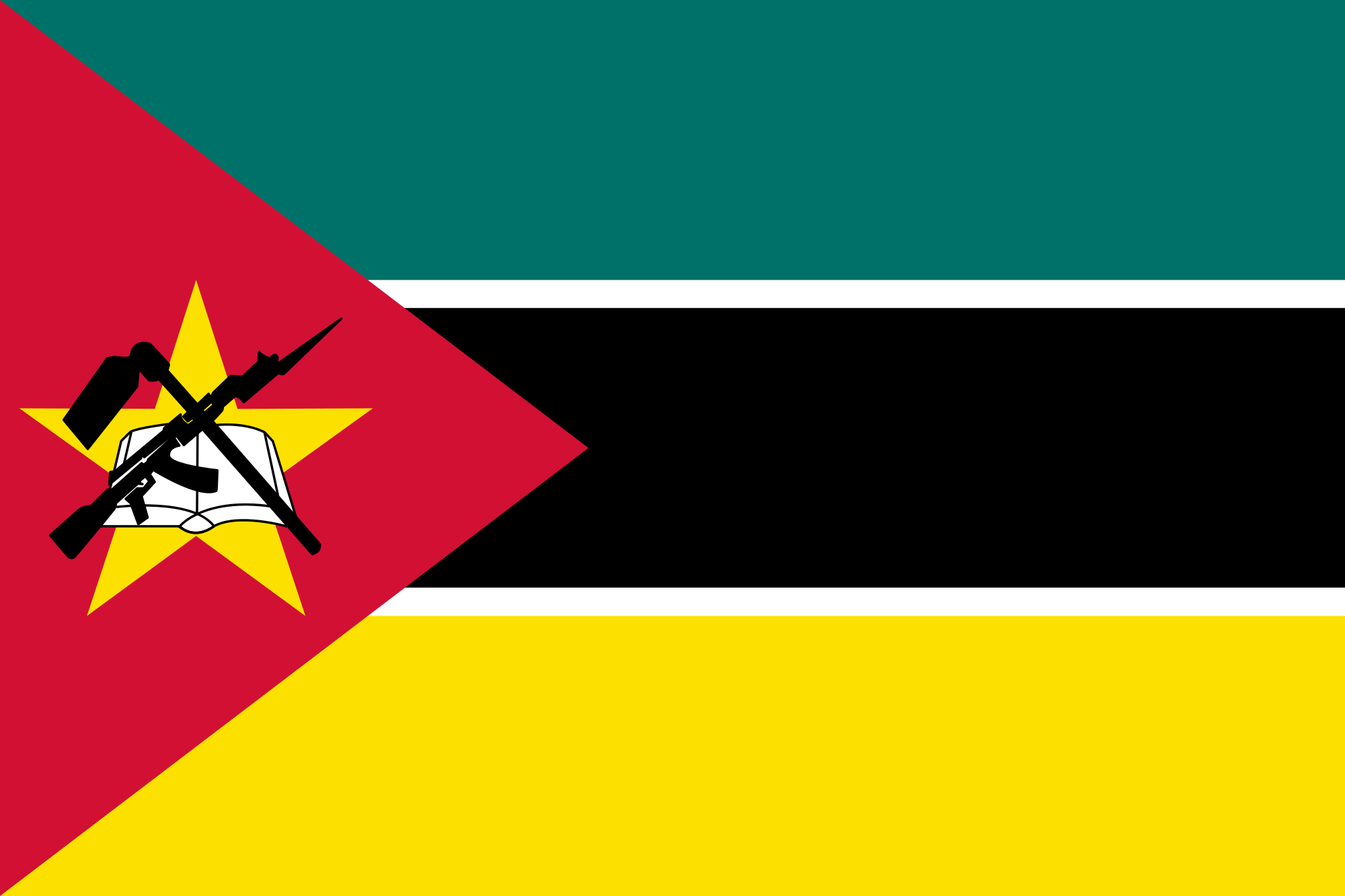Mozambique is a country in Southeast Africa encircled by the Indian Ocean to the east, Tanzania to the north, Malawi and Zambia to the northwest, Zimbabwe to the west, and Swaziland and South Africa to the southwest. It is detached from Madagascar by the Mozambique Channel to the east.
Mozambique is gifted with rich and extensive natural resources. The country’s economy is based largely on agriculture, but industry, mainly food and beverages, chemical manufacturing, aluminum and petroleum production, is growing. The country’s tourism sector is also growing. South Africa is Mozambique’s main trading partner and source of foreign direct investment. Mozambique is a member of the African Union, Commonwealth of Nations, the Community of Portuguese Language Countries, the Latin Union, Organization of Islamic Cooperation and Southern African Development Community and an observer at La Francophonie.
Flourishing Economy
Mozambique’s economy continued to be one of the most vibrant on the continent in 2013, with a 7% rate of real gross domestic product (GDP) growth. The key drivers of growth are foreign direct investment (FDI), dedicated mostly on the extractive sector, and growing public expenditure. The fastest growing sectors in 2013 were the extractive sector, driven by a boost in coal exports, and the financial sector powered by credit expansion and amplified income, mostly positioned on urban areas.
Other dynamic sectors are construction, services, and transport and communication, generally connected with infrastructure development and very large-scale projects, known in Mozambique as mega-projects. The agriculture sector, employing 70% of the population, lacks the same economic dynamism, although it is growing at above 4%. Assuming a stable political environment, forecasts are positive for 2014 and 2015, with growth forecast to remain above 8%, supported by increased coal production, continued public investment and the forecast start of the introductory work for the multi-billion dollar liquefied natural gas (LNG) plant.
The country economic latent for enticing investment in agro-industry, agriculture, tourism, fishing and mining is massive. Projects such as Mozal, the Cahora Bassa Dam, Railway and Port Corridors and Tourism Facilities throughout the country have been adding meaningfully in placing Mozambique in the course of major regional and international investments.
Agriculture/ Agro processing Sector
Agriculture is one of the crucial sectors of Mozambique’s economy. Its latent is high mostly in the fertile northern regions. The significant cash crops in Mozambique include sugar, tobacco copra, cashew nuts, tea and cotton. The government heartens farmers to produce industrially convertible crops, such as jatropha and cane to be used in biodiesel. Several companies are by this time implementing such projects. The production of cereals and seeds are currently a top priority in the country. Food processing and nutrition constitute a vigorous challenge for the agricultural sector in Mozambique.
Fisheries Sector
Mozambique is a country with countless fishing potentialities, derived from its coastal location, with a length of 2.750 kilometers and 200 miles off the coast of Exclusive Economic Zone (EEZ) constituting 586,000 km of surface of ocean water masses, having a diversity of fishery resources. A great area of opportunity is the formation of processing industry. Additionally, there are few aquaculture firms, which have the potential of generating great revenues.
Industrial fishing and semi-industrial are the sub-sectors involved in commercial fishing activities, whose production is mostly for the export market. Though, it is vital to note that the development strategy for the sub-sector of Artisanal Fisheries and Aquaculture targets to increase production in these subsectors and create devices to add value to these products so that they access the international market as well as expand supply to the internal market, contributing to food security and nutrition of populations and improved living conditions.
Industry/ Manufacture Sector
The Major industrial units are located in the main corridors of Mozambique: Maputo, Beira and Nacala. In the last 10 years, a total of 130 new small and medium-sized units opened in the whole country, providing 125,000 jobs, mostly in the sectors of agro-industry, engineering and furniture. The textile and clothing sectors are a primacy in government’s strategy in the creation of work opportunities.
The government is inspiring the companies to use the cotton produced locally to manufacture fabric. Under the same strategy, industries that settle in Mozambique obtain a full exemption from paying company taxation (IRPC) for 10 years and 50% in the subsequent 5 years.
Mining Sector
The mining sector of Mozambique holds great latent. The country is a foremost electricity producer and an exporter of coal. Numerous foreign companies which hold exploration licenses for oil and gas and minerals, such as titanium, uranium and gold, are searching in the mineral-rich Tete and Sofala provinces.
Mozambique attracts part of the FDI inflows into Africa for the following reasons:
Political stability and the confidence of foreign investors in the country’s governance system.
The existence not only of a national market but also of a regional (SADC) and international market (Mozambique is a member of the WTO and of other multilateral organizations and countries with which it trades)
The accessibility of resources, both natural and human, in addition to the relative abundance of the factor “land”.
The evidently defined macroeconomic policies that have backed to the auspicious economic growth of recent years.




